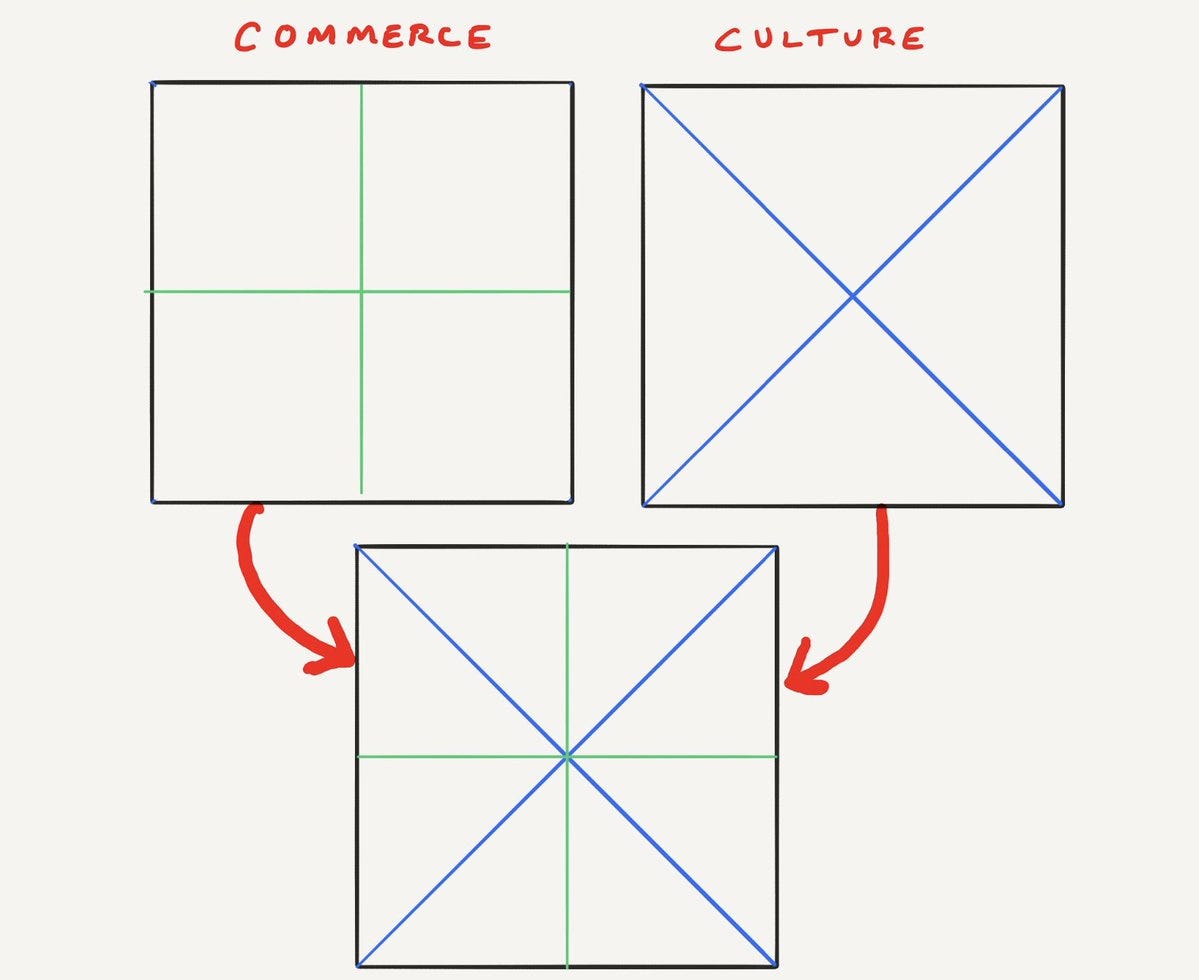The Distilled Philosophy of a Thoughtful Person (Jack Butcher)
Dear Everybody,
Channel the philosophy of a thoughtful person.
My take on the distilled philosophy of Jack Butcher (2 min. read time):
Memes exert force in the world and drive human progress. But many people still underestimate their power and significance.
In previous generations, the most valuable assets in the world were tangible (cash and goods). Today, the most valuable assets in the world are memes: intangible units of cultural imitation, encompassing knowledge and intellectual capital.
Equating memes with only internet memes discounts the true value of cultural imitation: the set of all possible realities that emerge from ideas going viral.
Whenever you make intangible ideas tangible – and transmit knowledge and behaviors to others – you’re creating memes. The faster and better you can make memes, the faster you and others can adapt, and the greater advantage you will have.
People and businesses gain competitive advantage by continuously and relentlessly making intangible assets tangible and converting knowledge into profit.
The more ideas are made tangible, the more they can be tested and shared. The more they can be tested and shared, the more accessible they are. The more accessible they are, the more they can be leveraged.
The capacity to make ideas accessible is also one of science's deepest roots: "the capacity to see beyond the visible” (Rovelli) The more people share a common belief in something, the more force it exerts in the world.
People who see the full value of cultural imitation as a unit of exchange tend to also share a belief in the potential value of Web3. The capacity for "tangible beliefs" to exert force in the world means some realities can be memed into existence.
The more you see memes as tangible units of cultural imitation, the more potential you see in bringing them together with other forms of exchange. Fusing them in Web3 could touch off explosive growth.
The market determines the success and failure of memes, and over time rewards successful adaptations. The process of selection between assets, ideas, and behaviors will create new and surprisingly valuable entities and processes. We haven’t even begun to see what’s possible.
Competition is the life of trade and trade of life. (Durant) You’re competing against billions of people, but you can meet, learn, and cooperate too. Your success is built on the “informed interplay between competition and cooperation.” (E.O. Wilson)
Mastery of the economy grows in stages: First understanding the game and then ultimately designing it.
"In listening to other people, I have come to realize I don’t have a monopoly on the world’s problems. Others have their share, often far bigger than mine. This has helped me to see my own in truer perspective ... and given me fresh ideas how to tackle mine."
-Edward R. Murrow
Sincerely,
Justin
Note: this series stresses "individual belief over dogma" Use it as an antidote to cynicism and to help you think about what we believe Comments welcome. All faults of interpretation are my own.





